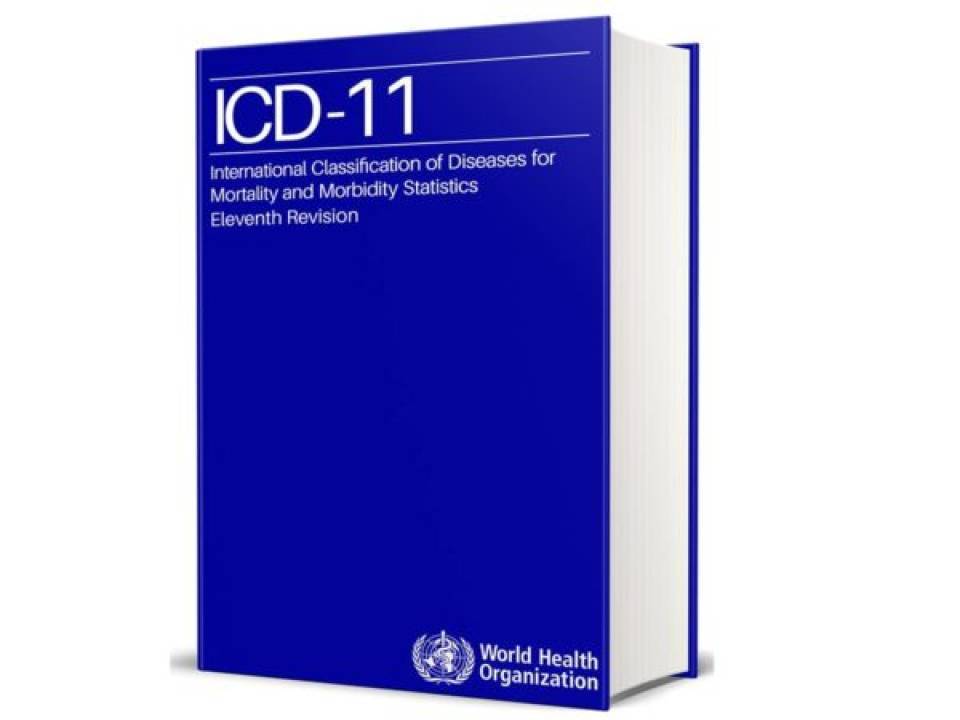Frequently Asked Questions about Chronic Fatigue Syndrome
What’s wrong with me?
CFS is a chronic neurological condition (lasting for at least 6 months) with a systemic impact, causing a marked decrease in the patient’s capacity for physical activity and neurocognitive function (short-term memory, concentration), it also produces mood swings and several other symptoms, which collectively mean the patient can only perform less than 50% of the total activities they once carried out.
Yes. Since 1991, the WHO has recognised CFS as an organic, neurological disease with systemic impacts. It would be incorrect to classify it as a psychiatric or somatisation disorder.
The suspicion of CFS is established by the presence of the FATIGUE symptom in a previously healthy person, defined as the inability, lasting for at least 6 months, to carry out physical or cognitive activities (less than 50% of their pre-CFS level).
The name approved by the WHO is Chronic Fatigue Syndrome. The condition has previously been known by other names:myalgic encephalomyelitis (ME); chronic asthenia; yuppie flu; post-mononucleosis syndrome; post-viral fatigue syndrome (PVFS); da Costa’s syndrome; neurasthenia or systemic exertion intolerance disease.
Epidemiological studies carried out in different global areas have identified that the incidence of CFS is very homogeneous at around 0.02 – 0.05% of the general population. This means that approximately 1 in 200 people are affected by the condition. The incidence is 10 to 20 times higher in women than in men, particularly in the 20 – 40 age group. In Catalonia, there are calculated to be over 35,000 people affected to varying degrees. The prevalence in Spain is above 300,000 people.
What tests will I undergo?
A clinical diagnosis is made by applying clinical criteria established by the WHO. Even though several other proposals have been put forward (International Consensus Criteria, Canadian Criteria, US Institute of Medicine Criteria), the diagnostic criteria currently approved by the WHO are the Fukuda Criteria (CDC, 1994). There are not a lot of practical differences between the different criteria proposed to date.
Oestrogens cause an increase in cerebral sensitivity to fatigue. That is why CFS affects more women than men. Patients with CFS should avoid the use of oestrogens.
Yes. Cases of paediatric CFS have also been described. It occurs less frequently than in adults. Typical symptoms are physical and mental fatigue, bone and muscle pain, migraine and sleep disorders. It can be a cause of underachieving and academic failure. Paediatric CFS is diagnosed according to specific criteria (Jason).
Yes. Progress monitoring has shown that the condition can continue to affect patients to a similar degree well into their 80s. CFS does not usually begin in old age but it can persist in people who developed the illness when they were younger.
Yes. It has been clearly demonstrated that CFS has predisposing genetic factors with polygenic inheritance. The probability of passing this predisposition from parent to child is approximately 15%, especially from mother to daughter.
No. The symptoms can vary greatly from one person to another and during different stages of a patient’s evolution. The most common symptoms are physical and mental FATIGUE, bone and muscle PAIN, and SLEEP and MOOD disorders. Each patient may have other conditions in association with the CFS (comorbidities), such as fibromyalgia or chemical sensitivity, which broadly expand the spectrum of symptoms.
What treatments are available?
The International Association for CFS (IACFS/ME) does not recognise the possibility of curing the condition, but rather only an adaptive, gradual improvement. This is because CFS patients suffer an irreversible dysfunction in the brain’s limbic system.
Assuming there is no curative treatment; patients must be well-informed and receive help adapting their overall activities to the grade of functionality permitted by the illness.The best treatment is based on scientific evidence, with a MULTIDISCIPLINARY APPROACH that combines supportive psychotherapy with a cognitive behavioural approach adapted to the patient; physical aerobic exercise planned with progressive, personalised guidelines; symptomatic drug therapy adapted to each patient and treatment of any comorbidities that may develop.
In mild cases (grades I-II), the family doctor assisted by local healthcare and complementary services (nursing staff, physiotherapy, psychological support, social workers, patient associations) can attend to many of the incidents that may arise. In severe cases (grade III) or during outbreaks of symptoms, or in patients who do not respond to any treatment, patients are best cared for in Multidisciplinary Specialist Units for CFS.
It is normally treated by specialists in general medicine, given that it is a systemic disease which requires a broad differential diagnosis and multidisciplinary management. The family doctor should provide close support to manage the daily impacts on patients. Many other doctors and healthcare professionals (nurses, neurologists, psychologists, psychiatrists, physiotherapists) may also contribute to the multidisciplinary care required by CFS.
Living with Chronic Fatigue
Sí, claramente. Afecta a la funcionalidad física y cognitiva de la persona afectada y su calidad de vida. En el grado leve de afectación, la persona no puede hacer ni el 50% de su actividad previa global. Puede requerir ocasionalmente alguna baja laboral. En el grado moderado de afectación, la persona solo puede trabajar de manera parcial (30-50% de la actividad previa) y con la necesidad de momentos de descanso o baja laboral. En los grados intensos (grado III) no es posible mantener una mínima actividad continuada, existe una afectación grave por debajo del 30%. La calidad de vida del paciente depende también del grado de afectación de síndrome de fatiga crónica y de la coexistencia de otras enfermedades (comorbilidad). A mayor número de comorbilidad, peor calidad de vida.
No. Not all people experience the same level of impact due to the illness. The condition has been classified into 3 grades of severity according to the overall impact on daily life.
Grade I (mild). The patient’s overall activity has been reduced to approximately 50% of their pre-CFS level.
Grade II (moderate). Functional impact with overall activity reduced to 30 – 50% of the pre-CFS level.
Grade III (severe). Severe functional impact with activity reduced to less than 30% of the pre-CFS level.
Yes, there is a clear association. The overlap between chronic fatigue syndrome and fibromyalgia ranges from 60% to 90% of cases. Some experts therefore consider that the two conditions are manifestations of the same illness in a common pathogenic context called central sensitivity syndrome.
No, CFS is not classified as a degenerative condition because it does not course with progressively increasing disability, and nor is it life-threatening.It is considered to be a CHRONIC, partially disabling condition with fluctuating NEUROINFLAMMATORY symptoms.
This point is still being debated and the scientific community has not yet reached a definitive conclusion. There is possibly an association. Some authors have reported a higher rate of lymphomas and breast cancer in CFS patients. However, data needs to be collected from a broader range of patients in order to form a conclusive response to this question. And so the scientific community has established this as a CFS research objective.
No. There is no objective reduction in life expectancy for people affected by CFS. Only a possible increase in the suicide rate among CFS patients has been reported.
Yes. Becoming pregnant is not contraindicated for women with CFS. In fact, the fatigue symptoms tend to improve temporarily during pregnancy. Nevertheless, it would be considered a high-risk pregnancy. After the pregnancy, the symptoms of CFS usually reappear with a similar severity as before it.
Research lines
Not enough to make reasonable progress. The US National Institute of Health (NIH) dedicates very little effort and funding to this condition. Japanese and British research centres have decreased their previous levels of support for basic research into CFS. In Spain, neither local, regional or national health authorities nor independent research agencies (e.g., Instituto de Salud Carlos III or the La Marató de TV3 Foundation) have provided clear support or prioritised research into the condition. On the other hand, the pharmaceutical industry is not particularly interested in investing in CFS research because the expectations of discovering a pharmacological treatment are very low.
Substantiated information by:

Published: 20 February 2018
Updated: 20 February 2018
Subscribe
Receive the latest updates related to this content.
Thank you for subscribing!
If this is the first time you subscribe you will receive a confirmation email, check your inbox

